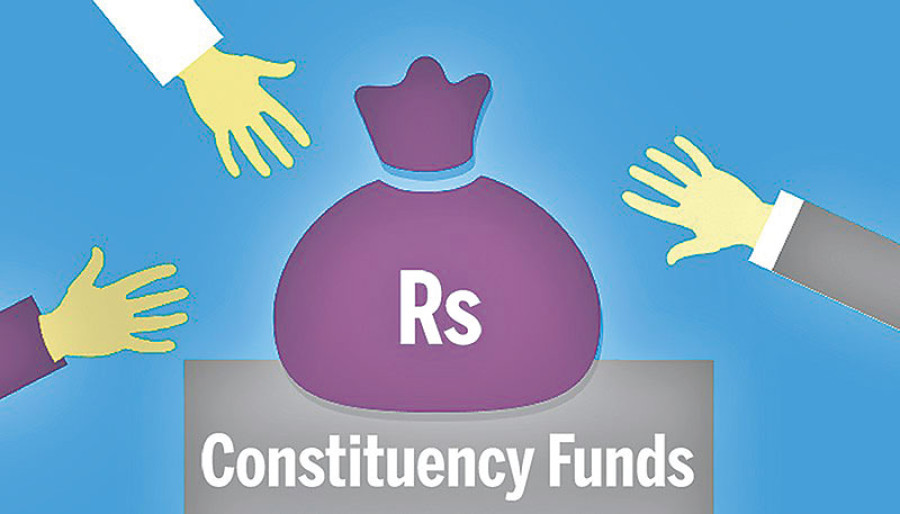Miscellaneous
51 projects flout rules: New study
A Non-Government Organisation (NGO) study reveals serious derelictions by a section of lawmakers in using funds allocated to develop their constituencies.
Non-Government Organi-sation (NGO) study reveals serious derelictions by a section of lawmakers in using funds allocated to develop their constituencies.
The results of the study come while lawmakers
continue to demand Rs 100 million funding for each constituency under Constituency Infrastructure Special Programme (CISP).
The Constituency Development Programme (CDP) is the other fund lawmakers use to develop their constituencies.
The Federation for Good Governance Nepal (FEG Nepal) report reveals many procedural violations in 51 of the 54 projects. The lawmakers divided funds marked for one project, did not follow legal template for procurement, and succumbed to political interference while selecting projects.
The report corroborates the conclusions of the Office of Auditor General’s (OAG) audit done in fiscal 2016-17.
Lawmakers want the government to continue the current funding of Rs5 million for each MP marked for CDP. The current fiscal year has allocated Rs30 million to CISP.
The FEG Nepal selected 54 projects in 18 constituencies of six districts—Sunsari, Kaski, Sindhupalchowk, Lalitpur, Kailali and Surkhet—for their study under CISP. Most projects were less than Rs 1 million. The average cost of the 54 projects was Rs 1.2 million.
CISP norms prohibit projects less than Rs700,000. The OAG audit in 2017 found 171 projects in 10 districts less than Rs700,000.
Lawmakers exceeded projects stipulated by the norms. They selected 90 projects in 15 districts each under the CISP in fiscal year 2015-16 while the norms allowed 15 projects, according to OAG report.
An elected lawmaker manages the CISP fund according to norms. FEG Nepal said this goes against the democratic principle of power separation. “Providing a lawmaker double role is CISP’s biggest weakness,” the FEG Nepal report said. “Such role invites fiduciary risk and the risk where the lawmaker may
keep himself or herself above the law.”
Fiduciary risk means not using funds for its intended purpose. This reflects in the choice of projects with lawmaker influencing the selection of 90 percent of the total projects, the report said.
Former Auditor General Bhanu Acharya said lawmakers used their power to select projects by violating rules, as the authority controlling their activities was not strong because of the political instability in the country. “Such impunity led to the anarchism in project selection,” he said.
Rules allow projects endorsed by the council of local bodies. Lawmakers broke this rule, the OAG report said.
CISP rules say execute projects through consumer committees. Lawmakers formed committees, accountable to them and not the local bodies, based on sharing political power and nepotism, the FEG Nepal report said.
Of 54 projects, only three followed Public Procurement Act, Public Procurement Regulation and Directive on Local Resources Mobilization and Management fully, FEG-Nepal report said.
Rules say select project based on presence of poor people, human development index and targeted beneficiaries. The report said only four from 54 projects targeted backward areas.
Despite so many violations, cross-party lawmakers are adamant to continue these programmes.
Former Auditor General Acharya said, “These two constituency funds are no longer needed after Nepal set up three-tier governments.”




 9.89°C Kathmandu
9.89°C Kathmandu









